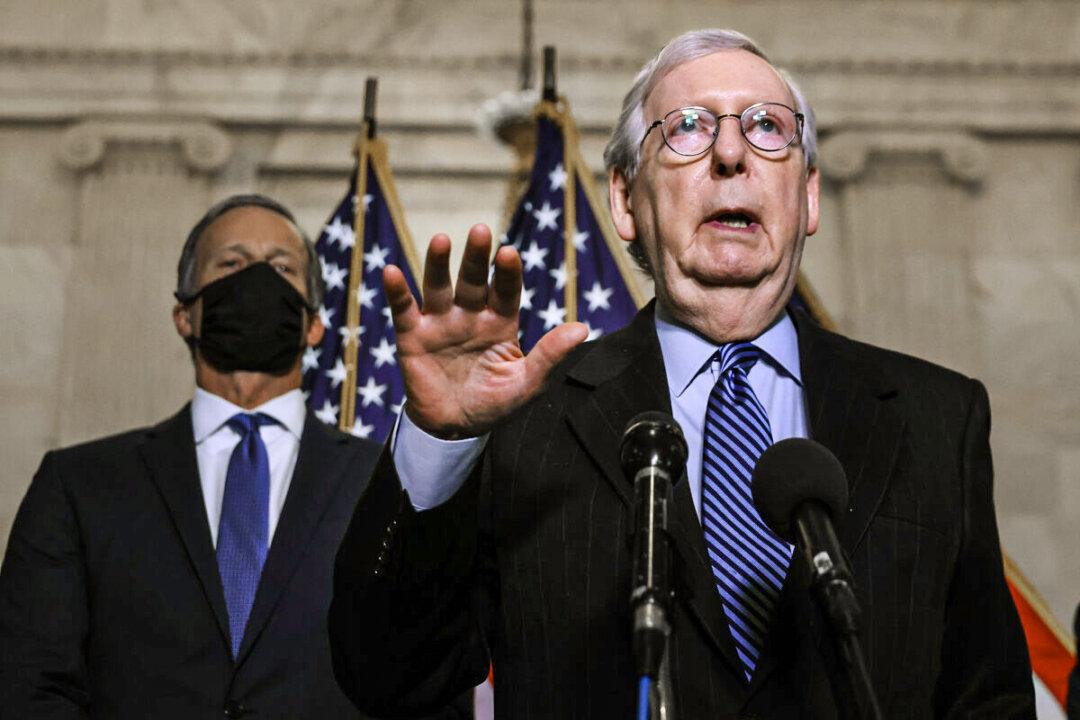Senate Minority Leader Mitch McConnell (R-Ky.) on Tuesday decried the Republican National Committee’s (RNC) decision to censure Reps. Liz Cheney (R-Wyo.) and Adam Kinzinger (R-Ill.) for their roles on the Democrat-dominated Jan. 6 Committee.
In its resolution censuring Cheney and Kinzinger, the RNC said that the Jan. 6 commission on which they serve as the only two GOP members, has shown “[a] disregard for minority rights, traditional checks and balances, due process, and adherence to other precedent and rules of the U.S. House and ... seem[s] intent on advancing a political agenda to buoy the Democrat Party’s bleak prospects in the upcoming midterm elections.





